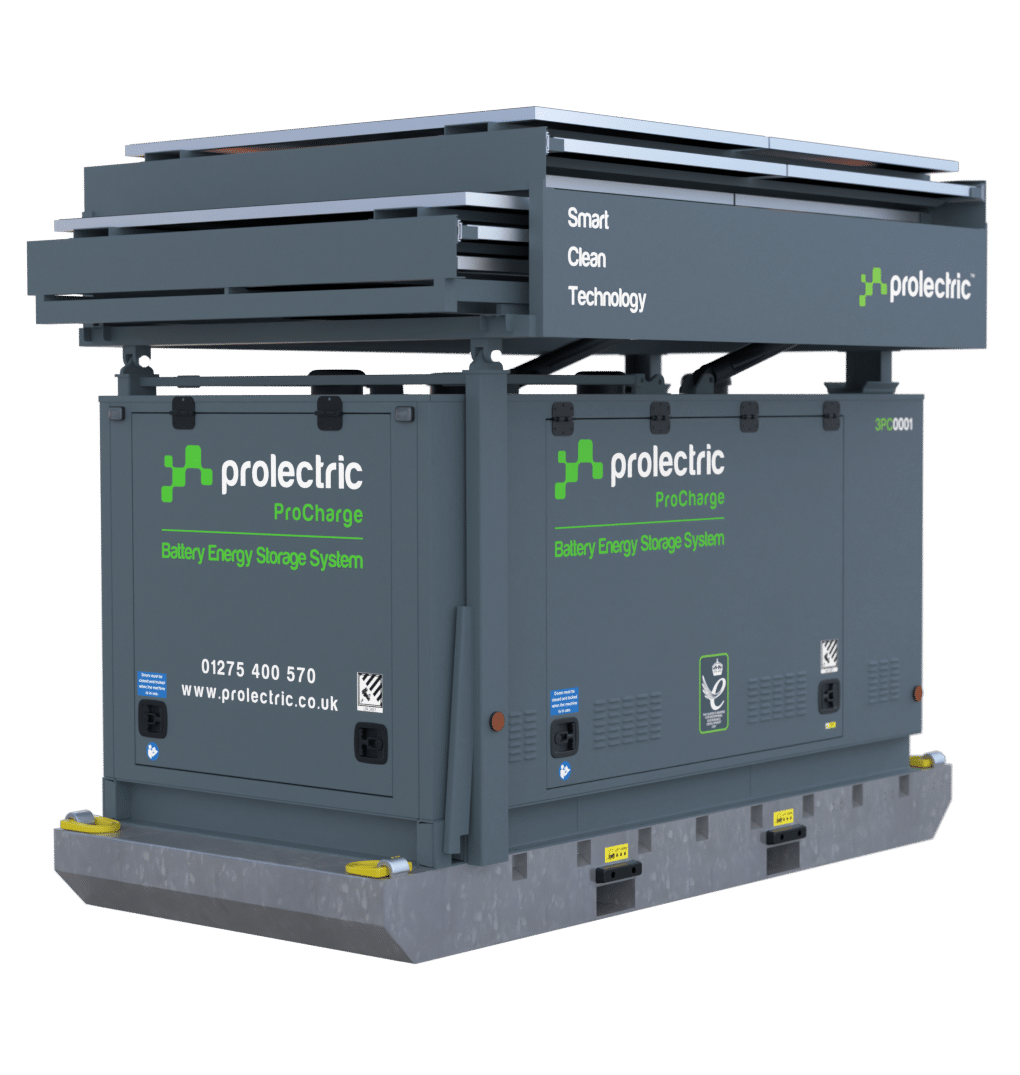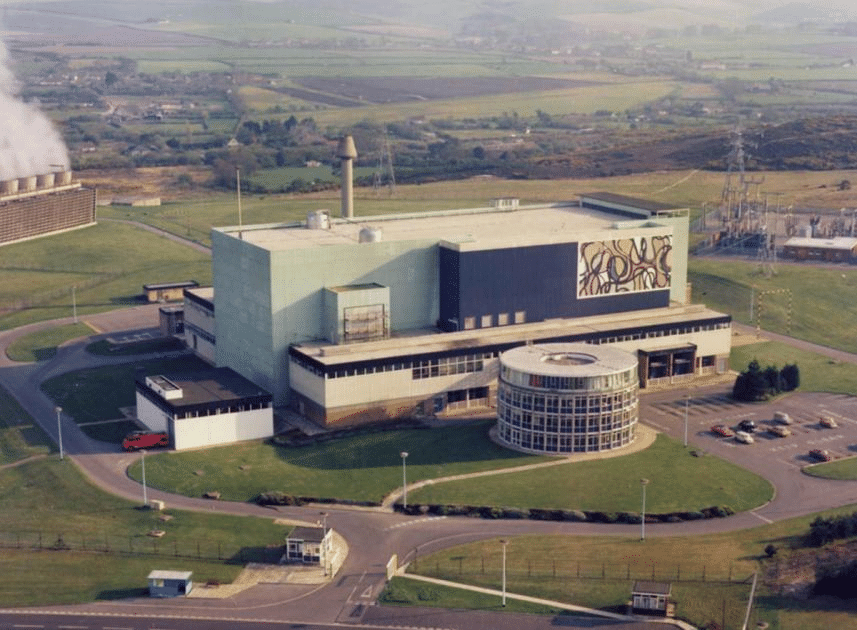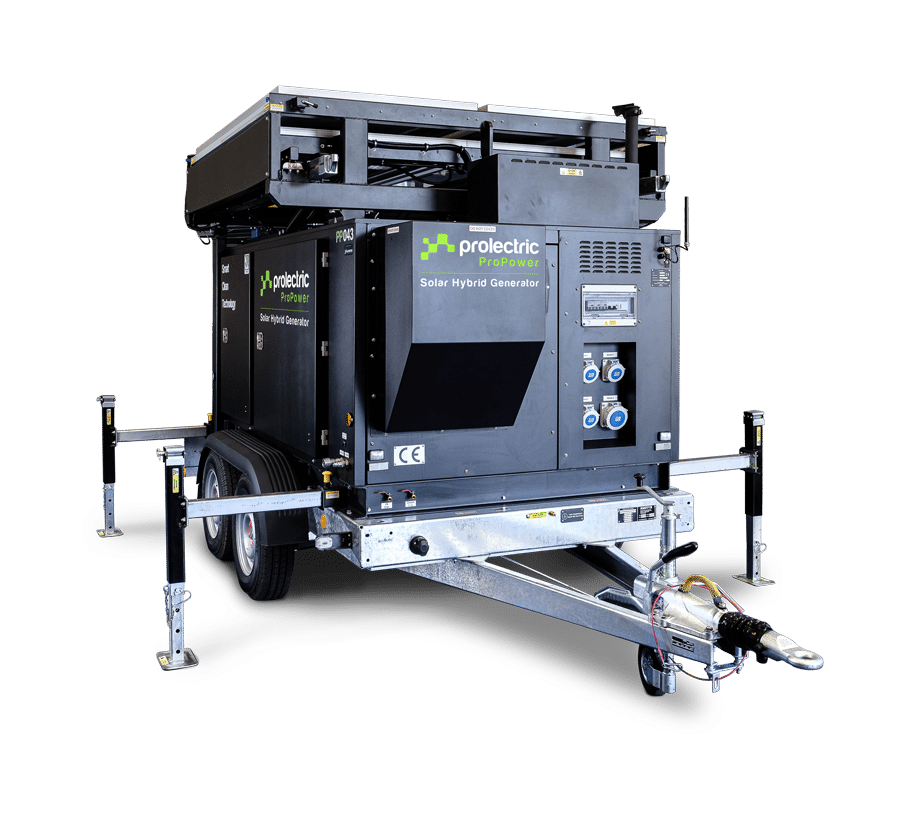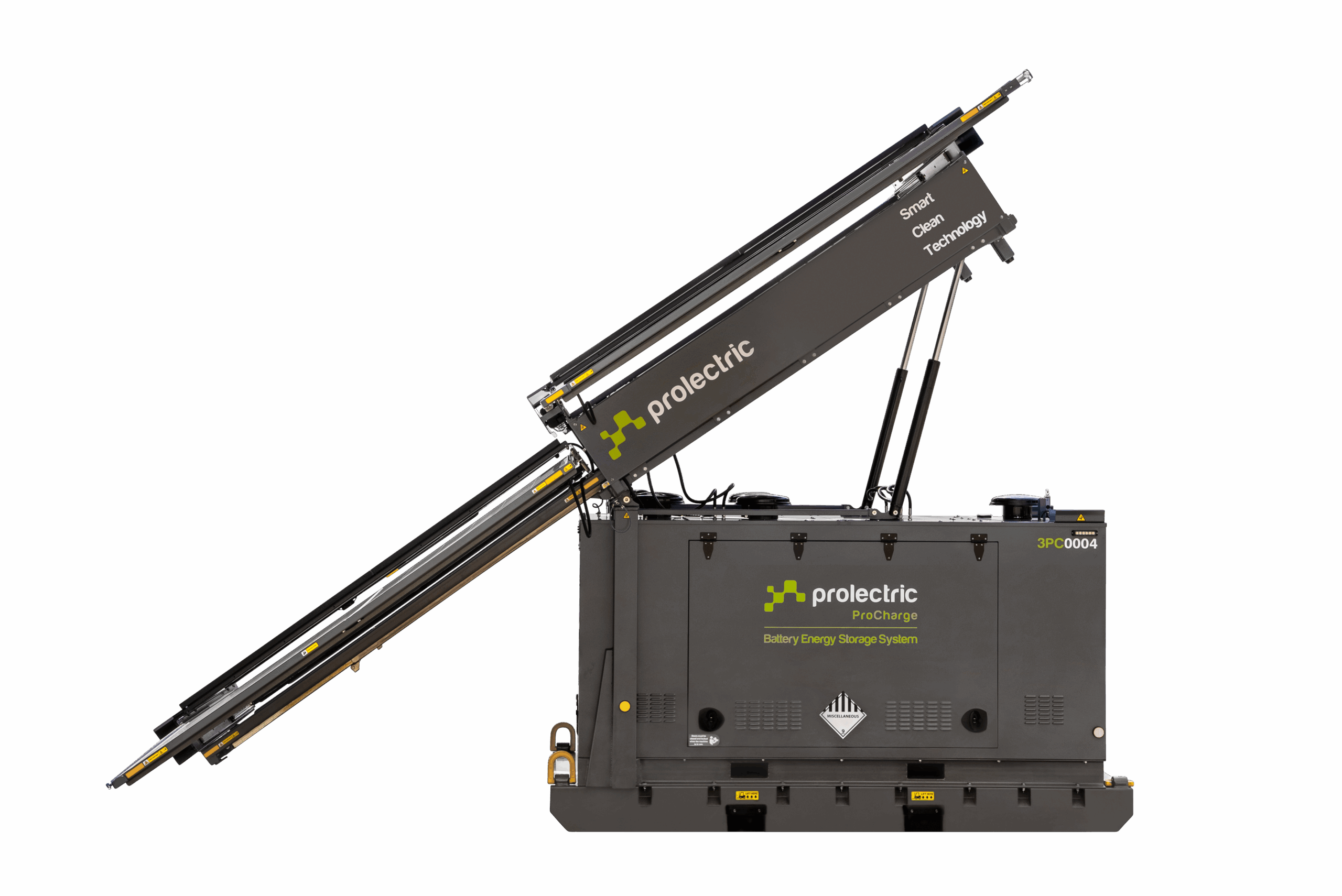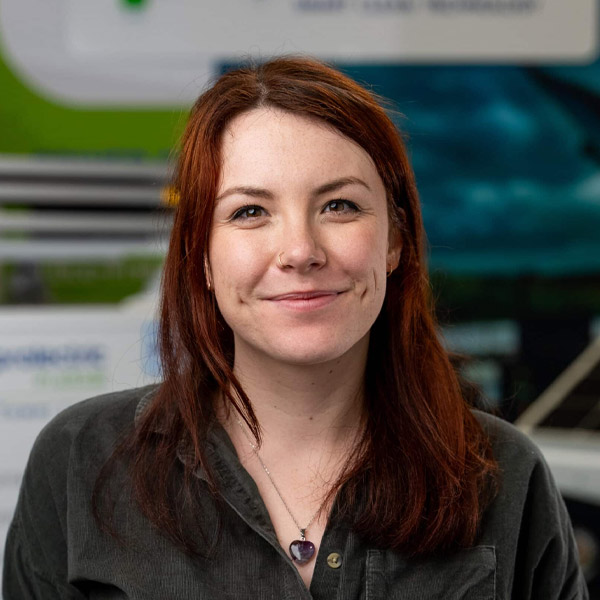Powering United Utilities’ Reservoir Monitoring
How much could
you save?
Find out your carbon and cost savings in just 60 seconds.
Project Savings
37
Carbon Savings (tonnes of CO2e)
14,132
Fuel Savings (litres)
21,198
Cost Savings (GBP)
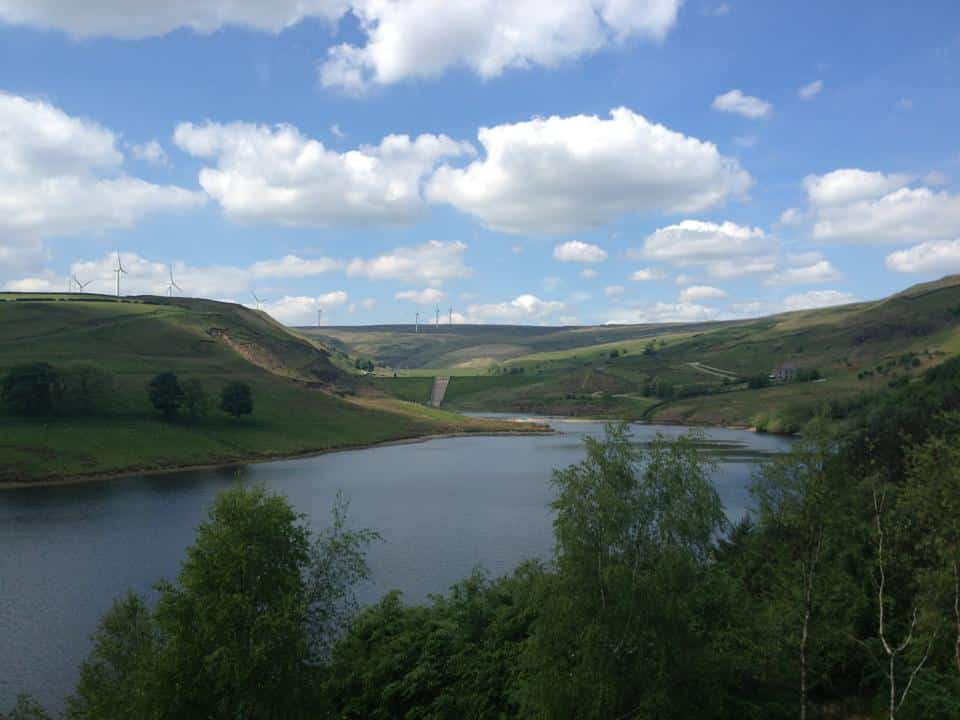
Prolectric partnered with United Utilities to power a remote water-flow monitoring station in Cumbria’s Lake District National Park. The team deployed a ProPower Solar Hybrid Generator to provide continuous off-grid electricity for sensors and control equipment. Over the deployment, the solar-hybrid system ran silently on solar power most of the year, only briefly using its diesel engine on low-light winter days.
Key outcomes included substantial savings – roughly 37 tonnes of CO2e avoided, 14,132 litres of diesel saved, and over £21k fuel cost reduction – by maximising solar charging. The result was far fewer site visits (refuelling shifted from weekly to roughly every 3 months), no noise complaints, and seamless remote monitoring (Smart Remote Portal). These achievements highlight the clean-energy potential of ProPower for large projects – exactly the sort of off-grid, low-impact solution needed on infrastructure works.
Area of Outstanding Natural Beauty
The Lake District National Park site is an area of outstanding natural beauty. United Utilities needed reliable power for a low-energy SCADA system that monitors and controls water flowing from the reservoir to the treatment works.
Powering Reservoir Monitoring
The monitoring equipment must run 24/7, but there was no grid connection in the narrow, flood-prone valley.
Using Diesel in a Sensitive Area
Traditional diesel generators were unsuitable; running a diesel unit continuously would waste fuel (idling with little load) and produce noise and emissions in a sensitive area.
Delays Due to Mains Installation
The site’s remoteness – two years would have been required just to install a mains supply – meant an innovative off-grid power solution was essential.
Challenges
- Limited Grid Access: The monitoring site was completely off-grid. Connecting mains power could take 18-24 months, so a generator was needed long-term.
- Harsh Site Conditions: The valley floor is prone to flooding, complicating any installation, and the UK’s unpredictable weather demands a robust power system.
- Difficult Access: A narrow, single-track lane leads to the site. Large equipment (and even fuel deliveries) would require helicopters or complex logistics.
- Residential Proximity & Noise Sensitivity: A farmhouse (with horses) sits close by. Its occupants were “very conscious of noise,” so any power source had to be extremely quiet.
- Low-Power Demand: The flow-control electronics draw very little power. A conventional diesel generator would often run with no load, wasting fuel and emitting CO2 needlessly.
The Solution
- Prolectric supplied a ProPower Solar Hybrid Generator – a trailer-mounted unit combining a diesel genset, batteries, and solar panels. Its trailered design meant it could be towed down the narrow lane without specialist transport.
- The 22kVA unit was configured in solar-first mode: its large PV array and batteries supply up to 95% of the energy, and the diesel engine only auto-starts to recharge batteries when needed.
- Key features addressed the challenges: the ProPower runs in silent battery mode most of the time, making it neighbour-friendly. (In practice it ran the engine briefly – typically up to 1 hour around midday – to top up batteries, when the occupants were away/out.)
- Prolectric’s Smart Remote Portal provided real-time monitoring and control: flow data, battery state, GPS location, and alerts are all viewable online.
- United Utilities could schedule fuel top-ups remotely and diagnose issues from the office (one technician commented, “it took very little of my time to manage it”). The result was a “climate-resilient” power solution that met the site’s needs without noise or downtime.
Performance and Results
Once deployed, the ProPower unit exceeded expectations. Remote diagnostics alerted the team of any issues which could be solved remotely, but otherwise the system “generally ran great” with minimal intervention.

From April through September (and often into October), the batteries stayed charged and the engine did not run at all. Even in winter the engine only ran briefly each day to recharge, aligned with work hours to avoid disturbance.
Scheduled refuelling dropped from once a week to about once every 3 months (and zero visits needed through the summer). This slashed travel time, costs and safety risks.
After ironing out one minor issue, no noise complaints were received. Even with neighbours close by, the system’s quiet operation was a “step in the right direction” environmentally.
What our clients have to say
The ProPower unit managed itself – I could predict when it would need fuel, so it took very little of my time to manage. We were typically refuelling only every 3 months, versus weekly on a diesel generator. Through summer it didn’t need any at all. Once we sorted one minor issue (someone pushed the emergency stop button), there were no noise complaints. It’s a step in the right direction – we’re not releasing carbon when we don’t need to.
Ben Tomlinson
Project Manager, United Utilities

Project Savings
Over the year these improvements translated into major savings. These figures capture the benefit of running on clean solar energy.
As one United Utilities engineer noted, replacing a diesel-only generator stopped wasting fuel and carbon when no load was present.
In summary, the ProPower hybrid delivered reliable power with a small carbon footprint and a greatly reduced operational burden.

37
Carbon Savings (tonnes of CO2e)

14,132
Fuel Savings (litres)

21,198
Cost Savings (GBP)
Key Benefits for Infrastructure Projects
- Off-Grid Adaptability: ProPower units are designed for any remote site. In this case the trailered generator was deployed down a narrow, flood-prone track. Similarly, projects which involve roadside, and tunnel works far from power – benefit from ProPower’s portable off-grid power.
- Zero-Emission Operation: By prioritising solar, ProPower cuts engine runtime by up to 90%, dramatically reducing diesel use. The avoided CO2₂and fuel savings here align with Tier 1 net-zero goals on major projects.
Smart Remote Insights: The built-in Smart Remote Portal provides live performance data, GPS location, and automated alerts. Project managers gain full visibility and control – assets can be scheduled and monitored from the office, minimising site visits and risk. - Low-Noise, Neighbour-Friendly: Silent battery operation makes ProPower suitable for construction zones near communities or sensitive habitats. In Cumbria the near-silent operation (just 1 hour/day of engine running) meant no disturbance to the nearby house.
- British-Engineered Reliability: Built to UK standards, ProPower units are weatherproof and “foolproof” even in winter. This proven reliability gave United Utilities confidence through the long deployment, and it reassures contractors that power won’t fail when and where it’s needed.
Prolectric’s partnership approach and cutting-edge technology deliver a turnkey solution for off-grid power. This Lake District National Park case study demonstrates how we can support Tier 1 Contractors upcoming projects with clean, efficient, and cost-saving power – from peak sunlit days to stormy winter nights.
Hire or Purchase –
Choose what works for your site?
